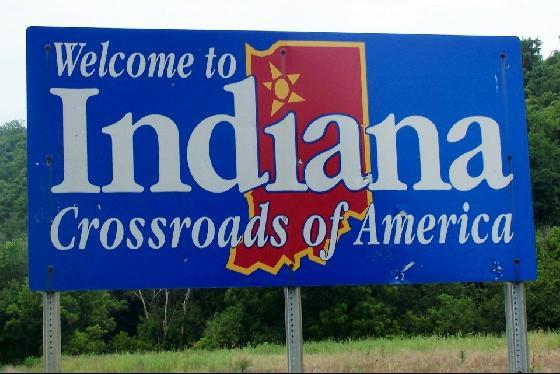
Scenic America is pleased to celebrate a major legal victory in the Seventh Circuit Court of Appeals. In a recent decision, the Court rejected claims by GEFT Outdoor that Evansville, Indiana’s zoning restrictions on a digital billboard constituted a violation of the First Amendment. This judgement is a significant win, reinforcing the critical role of zoning in protecting the character and beauty of our communities and the ability of local governments to implement thoughtful zoning rules.
Background of the Case
The case originated from GEFT Outdoor seeking to convert an existing static billboard in Evansville, Indiana, to a digital one. The municipality had enacted zoning regulations prohibiting such conversions, arguing that digital billboards would alter the visual landscape, distract drivers, and degrade the overall scenic quality of the area. GEFT argued that these restrictions were an infringement on their freedom of speech, a constitutional challenge similar to other ongoing disputes in the realm of signage regulation.
At the heart of this legal battle is the distinction between on-premises and off-premises signage, a critical factor in how local zoning laws regulate billboards. On-premises signage refers to signs located on the property of the business or entity being advertised, such as a sign in front of a restaurant, or in the parking lot of a business advertising a service being offered at the same location. Off-premises signage, on the other hand, advertises businesses, products, or services located elsewhere, which is the category under which most billboards fall.
The Role of On-Premises vs. Off-Premises Distinction
This distinction became particularly important in the Supreme Court’s ruling in City of Austin v. Reagan National Advertising (2022), which addressed how municipalities regulate signage differently based on location and message content. The Supreme Court upheld the City of Austin’s regulations that distinguished between on-premises and off-premises signage, ruling that these distinctions were content-neutral and, therefore, did not violate the First Amendment.
In this case, the Seventh Circuit applied similar reasoning. The municipality’s zoning regulations preventing the conversion of static off-premises billboards into digital ones were ruled to be content-neutral, as they did not seek to control the message being displayed but rather the type and placement of the sign. The decision solidified the role of local governments in regulating billboards based on location and protected them from accusations of unconstitutional content-based discrimination.
A Landmark Decision for Scenic Preservation
Building on the principles set forth in Austin v. Reagan, the Seventh Circuit’s ruling further affirms that local governments have the authority to regulate off-premises signage in the interest of preserving scenic beauty and community character. In this case, the municipality’s zoning ordinance specifically targeted off-premises digital billboards, arguing that they contribute to visual clutter and pose safety risks due to their brightness and attention-grabbing nature. The court rejected the billboard company’s challenge, on the precedent established in Austin v. Reagan that distinctions between different types of signage based on location do not amount to unconstitutional content-based regulations.
This ruling is important in our ongoing efforts to protect America’s scenic resources. By rejecting the First Amendment claim, the Seventh Circuit recognized the importance of local governments in crafting rules that reflect community values and safeguard the visual environment. Scenic America has long argued that excessive or poorly regulated signage, particularly digital billboards, can have detrimental effects on the natural and built environment, reducing the quality of life and eroding the visual appeal of landscapes.
Implications for Future Scenic Protection Efforts
This case maintains an important precedent for future legal battles concerning the regulation of signage. Scenic America has always supported community-driven billboard zoning efforts, and this victory is a testament to the importance of our work and the ongoing need for vigilance in defending the beauty of our landscapes. By affirming the ability of municipalities to regulate signage in the interest of aesthetics and safety, the Seventh Circuit has provided a valuable tool for local governments that wish to protect their community’s scenic heritage.
Moving forward, this ruling will empower local governments to enact and enforce regulations preserving visual beauty and quality of life. It also serves as a reminder that, while commercial interests may argue for the unrestricted proliferation of billboards, higher courts are willing to recognize the legitimacy of scenic preservation efforts. As we continue our advocacy for scenic beauty across the nation, this win demonstrates that legal protections are both essential and achievable. We applaud the Seventh Circuit for recognizing the importance of preserving the visual character of our communities, and we will continue to support local governments in their efforts to safeguard the landscapes that make America beautiful.